By Mark Hansel
NKyTribune managing editor
A tragic saga that began almost seven years ago may now be entering its final chapter.
After two days of questioning a jury has been seated in the David Dooley retrial.
Dooley is charged with murder and tampering with physical evidence in the 2012 killing of Michelle Mockbee.
Mockbee, a Fort Mitchell mother of two, was bludgeoned to death shortly after arriving to work at the facility in the Northern Kentucky Industrial Park in the early morning hours of May 29, 2012.

She worked at Thermo Fisher Scientific and Dooley was employed by an outside contractor to do custodial work at the facility.
Defense attorneys Deanna Dennison and Jeff Lawson, and Special Prosecutor Jon Heck, an assistant attorney general, began questioning 200 potential jurors Monday morning before settling on the 15 that were seated at about 4 p.m. Tuesday.
The jury of seven women and eight men will hear opening statements beginning at 9 a.m. today.
Only 12 will decide Dooley’s fate and three will act as alternates, but the actual makeup of the panel will not be decided until just before deliberation begins.
Dooley was originally convicted of murder in Mockbee’s death in 2014. That decision was overturned in May of 2017, when circuit Judge James R. Schrand ruled that evidence that might have aided in Dooley’s defense was withheld from his original trial attorneys.
The Kentucky Office of the Attorney General took over the case in October 2016, following allegations of questionable conduct by former Boone/Gallatin Commonwealth’s Attorney Linda Tally Smith.

Tally Smith was the prosecutor in the original trial and Heck was assigned to represent the Commonwealth in this proceeding.
Schrand presided over the original trial and the CR 60.02 hearing that resulted in the decision to overturn that verdict. He will also be on the bench for this trial.
In final questions to the pool from which the jury would be drawn, attorneys for both sides may have provided some insight into their trial strategy.
Heck told the jury that the burden of proof is on the prosecutor, but there are many ways to demonstrate guilt beyond a reasonable doubt.
He said eyewitness testimony was not required to arrive at a guilty verdict and that compelling circumstantial evidence could allow them to reach that conclusion.
Heck used an analogy from his personal life in an effort to help the jurors understand how circumstantial evidence could be used to find guilt beyond a reasonable doubt.
Heck explained that he lives alone, but has a cat. He said that the cat considers things that are left out in the home, such as a glass on a counter, toys.
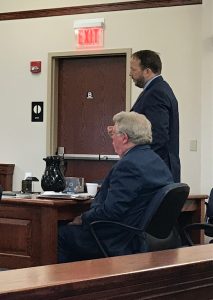
If he woke up one morning and discovered a broken glass, he said that while he had no direct evidence that the cat was the culprit, lacking other suspects, he could draw that conclusion beyond a reasonable doubt.
Heck also told the jury pool that motive, the reason why someone commits a crime, even murder, is not required to prove guilt.
When it was Dennison’s turn to deliver final questions to the potential jurors, she also emphasized that all defendants are innocent until proven guilty and that the burden of proof is on the prosecutor.
She said that the defense team plans to present forensic evidence, physical evidence, and expert testimony and will challenge the veracity of prosecution witnesses, to bolster its case.
She said, that if the Commonwealth hasn’t proven it’s case beyond a reasonable doubt, however, nothing else is required to find Dooley not guilty.
Dennison added that, under the Fifth Amendment to the U.S. Constitution, Dooley is not required to testify and a decision to exercise that right, if he so chooses, should not influence the jury’s decision.
Heck pointed out that identifying a motive wasn’t a requirement to find someone guilty of murder, but Dennison asked jurors if it mattered to them.
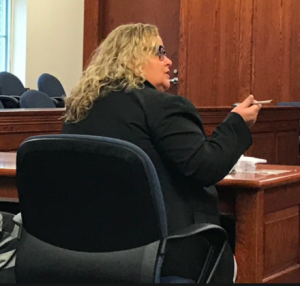
She essentially asked if being presented with reasons why someone might have brutally killed another person was important and the jury seemed to agree that it was.
Dennison also asked jurors if they believed there were good cops and bad cops.
Former Boone County Sheriff’s office Detective Bruce McVay was the lead investigator prior to the first Dooley trial. He engaged in an affair with Tally Smith and his conduct as a law enforcement officer was called into question by the former Commonwealth’s Attorney in excerpts from a correspondence that was made public during the retrial hearing.
McVay, who is now retired, is expected to testify.
The Commonwealth will begin to present evidence and call witnesses following opening statements, in a trial that is expected to go to the jury in about three weeks.
Contact Mark Hansel at mark.hansel@nkytrib.com













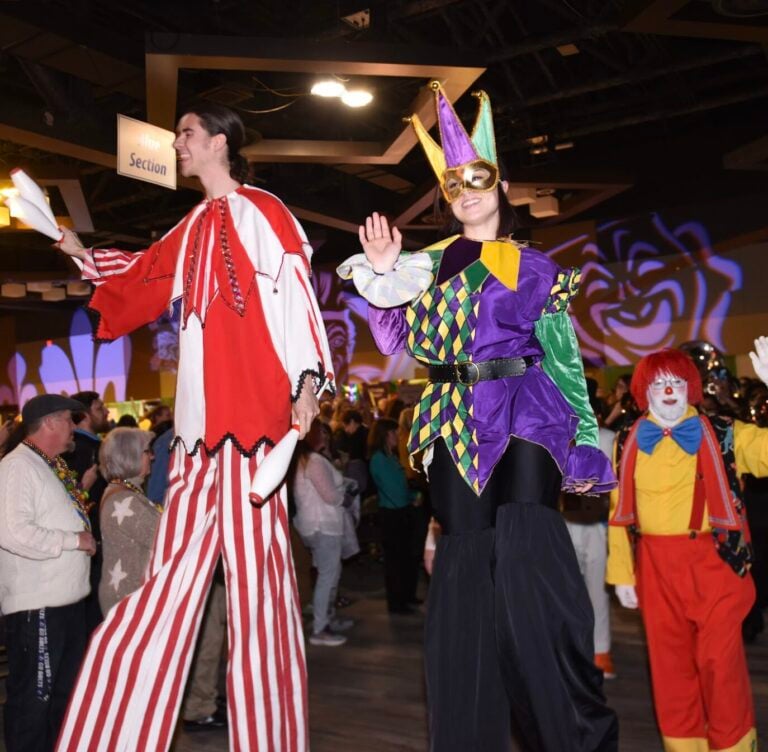

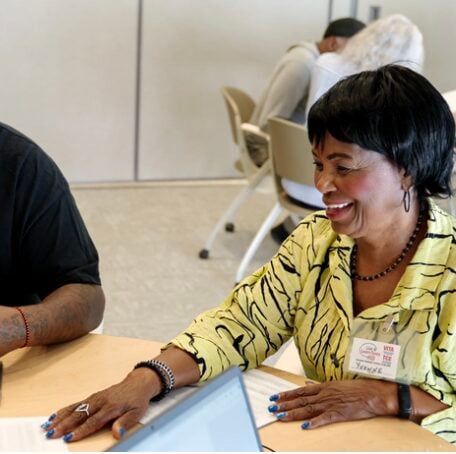
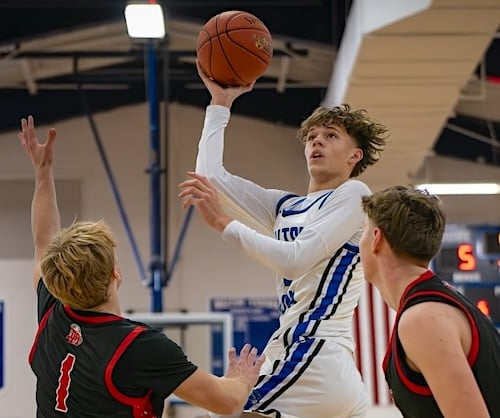

Good cops ? SURE ! Bad cops ? SURE ! ………. McVay, Bad cop ? ABSOLUTELY !!